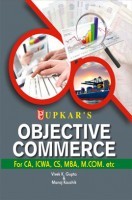The practice of management, as a matter of fact, dates back to the emergence of human civilization; such practice being primarily based on the common sense, foresight, wisdom and pioneering efforts of the practitioners. Gradual and systematic formalisation of management literature is an outgrowth of such practice.
The current industrial and commercial scenario characterisd by intensively increasing competitive conditions, far-reaching technological developments and a trend towards globalisation, liberalisation and privatisation calls for most skilled and highly professionalised management, to cope with the demands of the situation.
This book Useful for Management Students.
1. Introduction to basic managerial concepts
2. Management Principles
3. Process of Management (or Management Functions)
4. An overview of the development of management thought
5. General Aspects of planning
6. Special Aspects of planning
7. Decision-Making
8. General Aspects of Organising
9. Formal and Informal Organisations
10. Types of Organisations
11. Departmentation
12. Delegation of Authority
13. Centralisation and decentralisation of authority
14. General Aspects of staffing
15. Recruitment and selection of personnel
16. Performance Appraisal
17. Career Strategy
18. Manager and Organisation Development
19. General Aspects of directing
20. Supervision
21. Motivation
22. Leadership
23. Communication
24. General Aspects of Controlling
25. Controlling Techniques
26. Overall and preventive Control
27. Productivity and Operations Management
28. Social Responsibilities of business
29. Business Ethics
30. Organisational Culture
31. Towards a unified global management theory


















